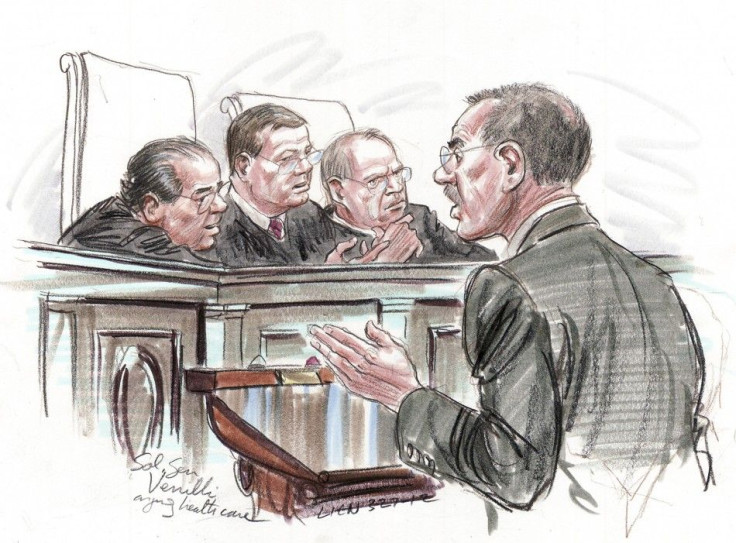Health Care Case: Justices Wary Of Getting Inside Congress' Head On Severability Issue

WASHINGTON -- The U.S. Supreme Court justices seemed wary Wednesday of getting into the mind of Congress in deciding the future of the Obama health care law if the insurance mandate falls.
The justices were presented with three options: Kill the law entirely, let most of it stand without popular insurance industry regulations or leave the law alone without the mandate.
Justices can try to determine Congress' intent in passing a law. Deputy Solicitor General Ed Kneedler, arguing for the administration, suggested diving into the text and the legislative history for an answer.
For a bill as lengthy and complex as the Affordable Care Act, though, Justice Antonin Scalia likened it to cruel and unusual punishment.
What happened to the Eighth Amendment? Scalia quipped.
Other justices refused to play the role of Congress to figure out what should stay and what should go.
What's wrong with leaving it in the hands of people who should be fixing this? asked Justice Sonia Sotomayor.
Justice Anthony Kennedy was concerned with how he and his colleagues should handle this issue.
We don't want to go into legislative history; that's intrusive, Kennedy said. I don't know what test we are supposed to apply. ... We want to clarify our jurisprudence.
Another issue the justices wrestled with involved all the Affordable Care Act provisions that are unrelated to the insurance mandate, like treating black lung disease and assisting rural communities.
There are so many things in the act that are unquestionably OK, Justice Ruth Bader Ginsburg said. Why make Congress redo those?
The court-appointed attorney arguing the case for maintaining the law even without a mandate, H. Bartow Farr, disagreed with some of the justices' contentions that the mandate was the heart of the act.
The minimum coverage provision, he said, wasn't something everyone was bragging about.
The minimum coverage provision was a tool to make the nondiscrimination provisions, community rating guaranteed issue, work, Farr said, referring to the prohibition on denying coverage for pre-existing condition or health status. There are many other tools to make the same things work.
© Copyright IBTimes 2025. All rights reserved.





















